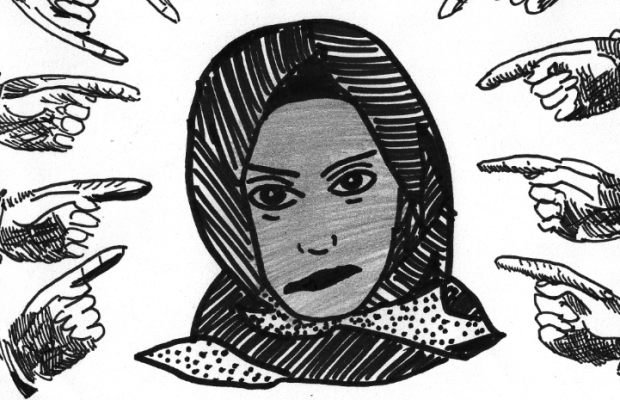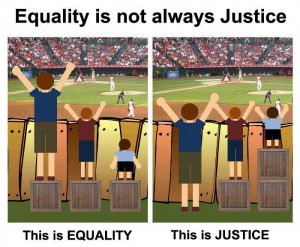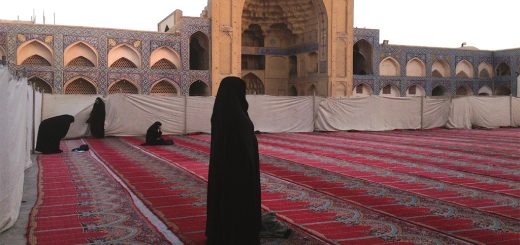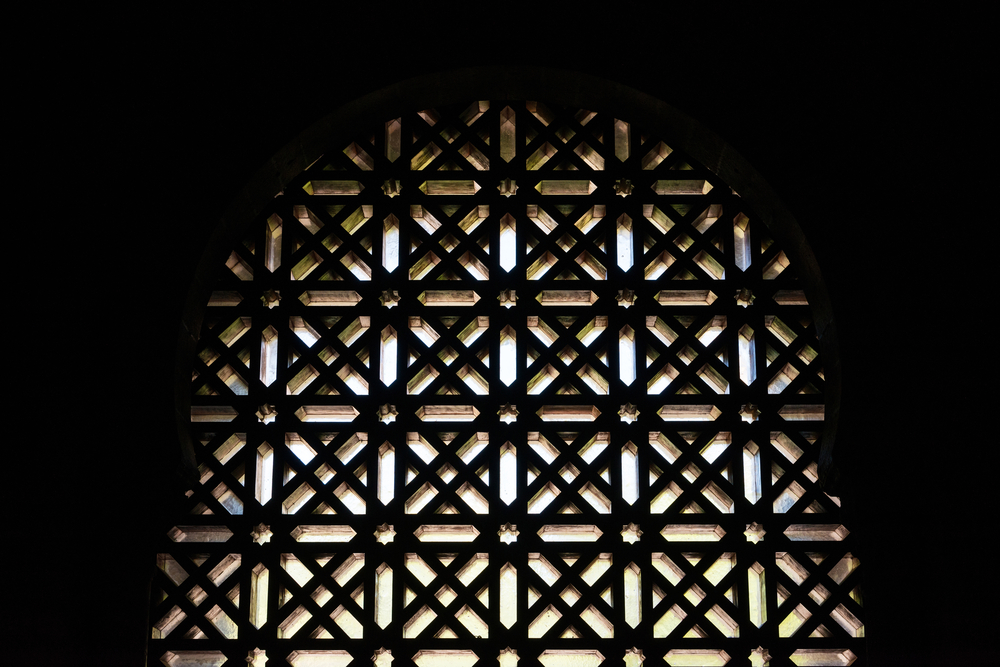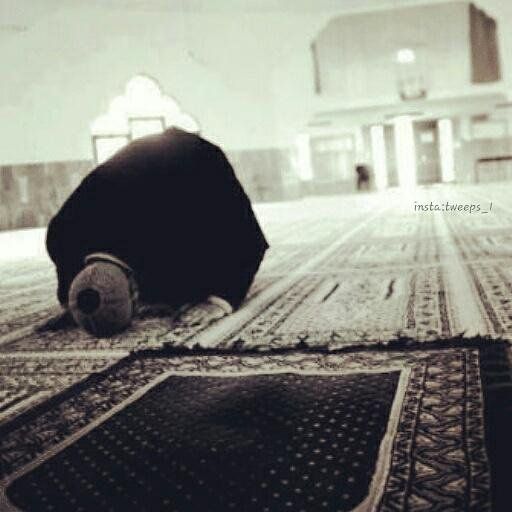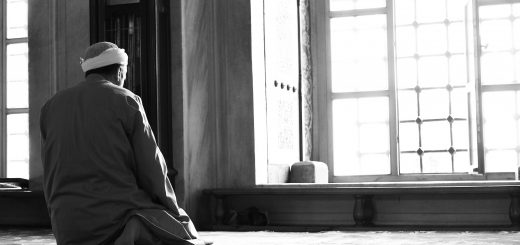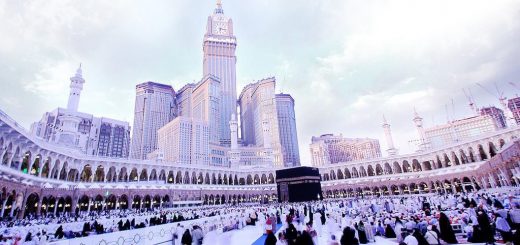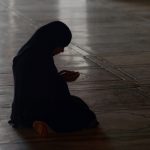QUESTION:
What do the respected Scholars of Islam say regarding the following issues affecting the Muslims of United Kingdom –
It is said “Islam is a religion that treats its women unfairly and without equal rights.” The examples that are given include:
- “Islam encourages arranged marriages and the woman have no choice who she can and cannot marry. If she says no or wishes to marry somebody else it usually leads to honour killings.”
- “Islam allows a man to beat his wife. This encourages Muslim men to physically and mentally abuse their wives.”
- “Islam does not allow a husband and wife to walk side by side, and instead a woman should walk behind her husband.”
- “Islam does not allow a woman to study or work, instead she must stay home at all times and be a housewife.”
- “Islam orders that Women be segregated from the men whereas men are allowed to freely mix with the opposite gender.”
Could you please clarify, correct or explain the statements above and give an insight to the rights and roles of a woman in Islam, for the benefit of both non-Muslims and also Muslims who may have doubts regarding such matters in their Religion.
ANSWER:
as-Salaamu alaykum wa-Rahmatu’Llaahi wa-Barakaatu-Hu
It is said “Islam is a religion that treats its women unfairly and without equal rights.”
The statement “Islam is a religion that treats its women unfairly and without equal rights” has two predicates conjoined to present a single argument; women are inferior according to Islaam.
The first question we must ask is, is the difference in rights seen as unfairness, or paraphrased, are women deemed to be treated unfairly due to them having different rights to men?
Anyone who argues that men and women are absolutely equal in every sense of the word is misguided. A simple question, can men give birth and can women impregnate? There is a difference biologically, a difference that no one can deny. As for other forms of differences, such as, differences in opportunities and day to day living, these must be elaborated and examined contextually. We cannot make a judgement that an entire religion is misogynistic in teaching and approach, especially when a sizeable portion of the religion’s jurisprudence is derived from a woman.
The word “equality”, meaning the quality of being the same in value or status, is a word which many people advocate in the modern world without realising or fully comprehending what they are demanding. The very same people argue that religions overall fall short in equality and specifically the religion of Islaam. The truth is, in Islaam, the equality between men and women exists with respect to certain aspects of life, whilst in other aspects, to the onlooker, there is inequality. No one ever claimed Islaam is a religion of equality. Islaam is a religion of justice and there is justice in all aspects for men and for women. What is the difference between equal rights and just rights?
There is the famous image of the difference between equality and justice shown below:-
To reiterate, Islaam is a just religion, just to the woman in all purity of the word and just to the man in all purity of the word. This justice is seen through all the rulings of Islaam. Take for example the ruling of zakaat (giving alms to the poor). The rich are taxed 2.5% of their annual savings, whilst the poor receive charity and are exempt from paying this tax. Equality would dictate that the rich and the poor are equally taxed.
Equality implies there is no difference between men and women. Justice, however, means giving the man and the woman exactly what he or she is entitled to.
The noble Quraan states:-
“Indeed, Allaah decrees the commands of justice and kindness, and giving to relatives, and forbids from lewdness, evil and rebellion; He advises you so that you may pay heed”.
[Kanzul Eemaan 16:90]
Even in the past, there were many who like today, argued about equality as opposed to fairness through justice. And this is an argument that will always exist. I reiterate, equality is necessary when equality should exist, however, justice should exist in all spheres of life.
If we proposed a civil engineer is given the equal opportunity to operate on an ill patient’s ailing heart, next to the world’s leading heart surgeon, the suggestion would be written off as ludicrously preposterous. We see justice, ahead of equality, in various aspects of our life and have accepted them as unquestionable norms without realising. Take for example, the priority seating in buses and trains for the elderly, pregnant and disabled. Equality would dictate that they too should struggle to find a seat or stand during crowded times of commute – but this would be viewed as immoral and unethical.
There are numerous examples as such, where inequality is necessary and equality is immoral and unethical. The same argument exists for Islaam, there is equality when necessary and differentiation when necessary but justice in all cases.
With respect to women and men, Allaah says in the Quraan:-
“Men are in charge of women, as Allaah has given one of them more than the other, and because men spend their wealth for the women”.
[Kanzul Eemaan 4:34]
The Arabic word qawwam, used for the men, comes from the root word iqamah. According to ibn Katheer, this means one degree higher in responsibility, not one degree higher in superiority.
And Allaah knows best.
—
1) “Islam encourages arranged marriages and the woman have no choice who she can and cannot marry. If she says no or wishes to marry somebody else it usually leads to honour killings.”
A prerequisite to elaborating the above mentioned statement is the knowledge of the difference between religious and cultural practices. Initially, we ask the questions; are arranged or autonomous marriages commanded or prohibited by Islaam? Further, are ‘honour’ killings universally found amongst all Muslims irrespective of their location or are ‘honour’ killings isolated to a particular location irrespective of the religion of the population?
Statistically, we find the vast amount of ‘honour’ killings, approximately 1000 per year, take place in the subcontinent irrespective of religion. The violence and in many cases killing, is based on culture. This statement can be expressed confidently as nowhere in the Islamic religious text can any commandment be found justifying any form of violence or killing under the pretext of honour or lack of it. Rather, we find Allaah says in the Quraan:-
“whoever kills a human being except in lieu of killing or causing turmoil in the earth, so it shall be as if he had killed all mankind”.
[Kanzul Eemaan 5:32]
There is no honour in killing. Historically, we find laws permitting killings are not derived from Islamic precepts, but from the penal codes of the Napoleonic Empire which legislated for crimes of ‘passions’.
With regards to marriage, a woman has the right to marry whomsoever she desires on condition of equality in belief. She can even marry her ex-husband if she so desires for Allaah says in the Quraan:-
“O guardians of such women, do not prevent them from marrying their husbands if they agree between themselves in accordance with Islamic law”.
[Kanzul Eemaan 2:232]
According to Imaam Abu Haneefah (رضي الله عنه), a virgin woman has the right to independently dispose of her wealth and property; likewise she has full autonomy in marriage. It is not permissible for a parent or guardian to object without a justified reason. The Prophet ﷺ warned unnecessarily objecting to a legitimately good proposal will be a means for tribulation and widespread corruption upon the earth.
It is also necessary to know the difference between an arranged marriage and a forced marriage. Unfortunately, especially in the west, these two terms have become synonymous to oppression. Let it be known, an arranged marriage which is consensual is not equal to a forced marriage. In Islaam, there are many traditions which emphatically demonstrate the validity of a marriage is conditioned upon the consent of the bride. Parents do not have the authority to compel their son or daughter to marry. The parents’ role in marrying off their children is manifested in giving good counsel. The final say in this matter belongs to the son or daughter themselves.
To kill a child due to a difference of his or her desire to marry or not to marry is abhorrent.
And Allaah knows best.
—
2) “Islam allows a man to beat his wife. This encourages Muslim men to physically and mentally abuse their wives.”
Those individuals who attempt to present Islaam negatively will ignore the innumerable verses from the Quraan and examples found in the words of the Prophet ﷺ calling for good treatment of the spouse. Infamously, they will present a single verse without understanding the contextual meaning nor studying the exegesis presented by the Prophet Muhammad ﷺ dearest companions, who were not Islamic apologists appeasing the west, but rather preached the Islaam that was taught to them directly by the Prophet (صلى الله عليه و سلم).
The verse that is presented by the antagonists, Allaah says in the Quraan:-
“and the women from whom you fear disobedience, (at first) advise them and (then) do not cohabit with them, and (lastly) beat them”.
[Kanzul Eemaan 4:34]
The Arabic word ‘wa-driboohunna’ which translates to ‘and beat them’, instantly has alarm bells ringing. Beat them means, if advice and discontinuing marital relations do not produce the desired results, Islamically, it is permissible to discipline the wife. This, in no way, means to beat the wife severely. The companion Jaabir (رضي الله عنه) said that the Prophet ﷺ said during the Farewell Hajj; “Fear Allaah regarding women, for they are your assistants”. Al-Hassan al-Basri and several others in explaining this verse emphasised this beating is not violent. Non-violent beating is an oxymoron which Abdullah ibn Abbas (رضي الله عنه) explained; “it is beating using a twig like toothstick (miswaak) which is traditionally no lengthier than a hand span”. Only an imbecile would claim to be a Muslim and beat his wife, or claim to be a non-Muslim and say Islam promotes female violence. The reason why they are imbeciles? They choose to take the literal meaning of an ambiguous phrase over the many explicit verses and traditions calling upon love, harmony and justice between spouses. Allaah says in the Quraan:-
“and deal kindly with them; and if you do not like them, so it is possible that you dislike a thing in which Allaah has placed abundant good”.
[Kanzul Eemaan 4:19]
Further the Messenger of Allaah (صلى الله عليه و سلم) explicitly said, “The best of you are those who are the best to their wives.” This statement along with other similar statements, are the foundation highlighting it is absolutely unlawful to abuse a wife, injure her, or insult her dignity.
And Allaah knows best.
—
3) “Islam does not allow a husband and wife to walk side by side, and instead a woman should walk behind her husband.”
Once again, this is a cultural issue as opposed to a religious dogma which is adhered to. There is no ruling in the Quraan or the Prophetic tradition which specifies how a married couple should walk when together.
In some cultures, the man is seen walking ahead due to pride. In other cultures, the woman is seen walking ahead due to safety. We also find, in some cultures, both husband and wife are seen walking adjacent to one another, with or without love.
We find in authentic traditions the Prophet of Allaah ﷺ when mentioning the merits of his first wife, Sayyidah Khadeejah (رضي الله عنها), said, “she believed in me when no one else did; she accepted Islaam when people rejected me; and she helped and comforted me when there was no one else to lend me a helping hand.” When the Prophet of Allaah presented Islaam to the public, it was his blessed wife, who stood by his side. The narrator of this tradition is the Prophet Muhammad’s ﷺ other beloved wife, Sayyidah Ayesha (رضي الله عنها) – the wife the Prophet raced with twice, on the first occasion she was ahead and won, and the second occasion he ﷺ was ahead and won.
There is an unreferenced attribution to the daughter of the Prophet ﷺ, Sayyidah Faatimah (رضي الله عنها), she would walk ahead of her husband, Sayyidunaa ‘Ali (رضي الله عنه) so to ensure no other man steps in her footprints but her own husband.
And Allaah knows best.
—
4) “Islam does not allow a woman to study or work, instead she must stay home at all times and be a housewife.”
The Prophets “leave no inheritance” save knowledge. The ones who successfully inherit this knowledge are referred to as scholars. One of the greatest inheritor of this knowledge was the Prophet Muhammad’s ﷺ wife, Sayyidah Ayesha (رضي الله عنها). She was one of the most prolific narrators with over two thousand traditions and further a vast amount of jurisprudence is derived from her narrations.
The role of the woman differs to that of a man. Idealistically, the man is presented as the breadwinner, whilst the woman as the homemaker. Islaam does not explicitly prohibit a woman from studying or working, but rather, places conditions for both sexes that the work or study environment must be free from vice moreover free from the precursors to vice.
Allaah says in the Quraan:-
“And remain in your houses and do not unveil yourselves like the unveiling prevalent in the times of ignorance”.
[Kanzul Eemaan 33:33]
The Arabic word ‘qirna/qarna’ is derived from al-qaraar which means to settle or rest. Those individuals who force their women to remain within their homes have taken this verse out of context. Looking at the previous verse and the one after, one will see these group of verses are advice for the wives of the Prophet Muhammad (صلى الله عليه و سلم). Naturally, the Muslim women as a whole view the Prophet’s wives as role models and thus imitate them – falsely believing to remain in the house at all times is necessary. The command is not contextually absolute but rather it can be understood that a woman’s role is within the house and she should not unnecessarily spend time away from it. There are a thousand and one reasons a woman may leave her home, if the verse is to be taken as absolute, she would be sinful for leaving the house in any circumstance, for example, even to perform hajj.
And Allaah knows best.
—
5) “Islam orders that Women be segregated from the men whereas men are allowed to freely mix with the opposite gender.”
This is incorrect. The warning and prohibitions found within the Quraan and Sunnah are equal for both men and women. The regulations related to male-female interaction are essential to the very soundness of human civilisation. If ignored, they threaten the very fabric of its survival. Islaam is a complete way of life and also presents rules and regulations for the social order of life. The rules and regulations of segregation have been established in Islamic Law to remove the possible causes which may breed corruption. Prevention is better than cure; Islam discourages free and unbridled contact between men and women in order to check the consequences of undesirable impulses.
Allaah says in the Quraan:-
“And do not approach adultery – it is indeed a shameful deed; and a very evil way.”
[Kanzul Eemaan 17:32]
The verse is a prohibition aimed at both sexes wherein Allaah did not say, ‘do not commit adultery’, but rather he said, ‘do not approach adultery’. Islaam removes the precursors to sin and this is true for both male and female, as can be found in the commands of Allaah:-
“Command the Muslim men to keep their gaze low and to protect their private organs; that is much purer for them; indeed Allaah is Aware of their deeds. And command the Muslim women to keep their gaze low and protect their chastity.”
[Kanzul Eemaan 24:30-31]
So we see, Allaah equally regulates the men and women in such matters.
And Allāh knows best.
Answered by Ustadh Asid Shafait
Checked by Shaykh Naveed Jameel
View and download this answer in PDF – [Q-ID0227] Is Islam a religion that treats its women unfairly and without equal rights
Read more answers written by Ustadh Asid Shafait:
[Q-ID0638] What is the Islamic perspective on bullying?
[Q-ID0118] Why are ‘Muslim’ grooming gangs targeting Sikh girls?
Ofsted question Muslim Girls about the Hijaab
[Q-ID0258] Jesus in Islam – how are Muslims’ beliefs different to that of Christians?
[Q-ID0357] Is Islam a homophobic religion?
[Q-ID0323] Does Shariah Law require 4 witnesses to prove Rape? What is the punishment for a Rapist?
[Q-ID0388] Why can a man have upto 4 wives but a woman can only have one husband?
